How to Take a Compliment
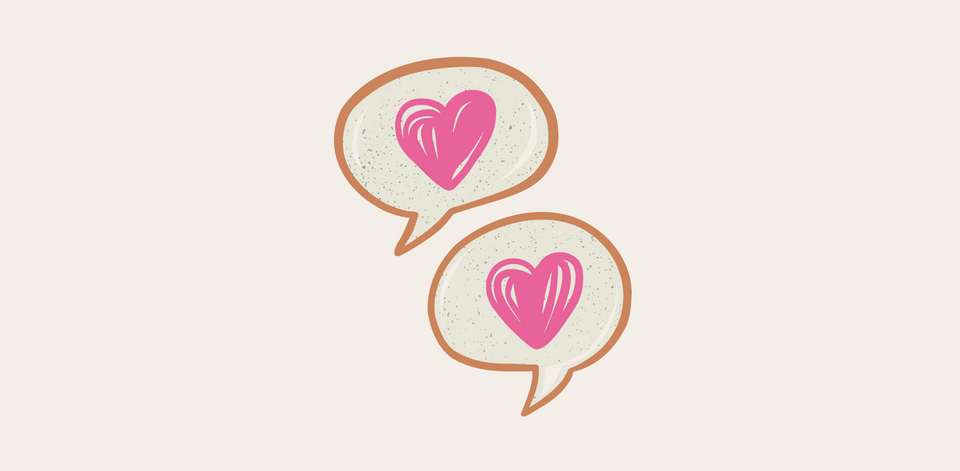
Why do I look for validation, but struggle to take a compliment?
There’s a million ways to respond to a compliment: Deny it, deflect it, change the topic, stammer an awkward “thanks” that sounds more like a question. Or, if you’re truly brave, the hardest option: Actually accept it.
It’s almost funny - you would think that everybody loves praise. Big (being appreciated by the people you love) or small (being validated in your choice of clothing), compliments seem like something that social creatures would enjoy tremendously. But for the longest time, a compliment was the quickest way to make me lose every piece of confidence I have. I just had no idea what to do with myself in that moment.
Do I return a compliment? No, that would seem forced and fake. Do I agree? No, I don’t really feel that way. So instead, I’d just look away awkwardly until the topic shifts. Great solution.
Until recently, I thought this was just a personal problem. But then one of my wonderful friends had a minor breakdown after being called “beautiful”, so she asked me to write a piece on “How to take a Compliment”. Well, here we are.
Old News
As it turns out, struggling to take a compliment gracefully is a universal experience. And it’s not new either. Doing my research for this piece, I found a lovely study from 1986 fittingly titled “Say ‘Thank You’ - or something”.
It examines over 1000 people receiving compliments and classifies their answers. They found 12 types of answers - of which a mere three qualify as some kind of acceptance.
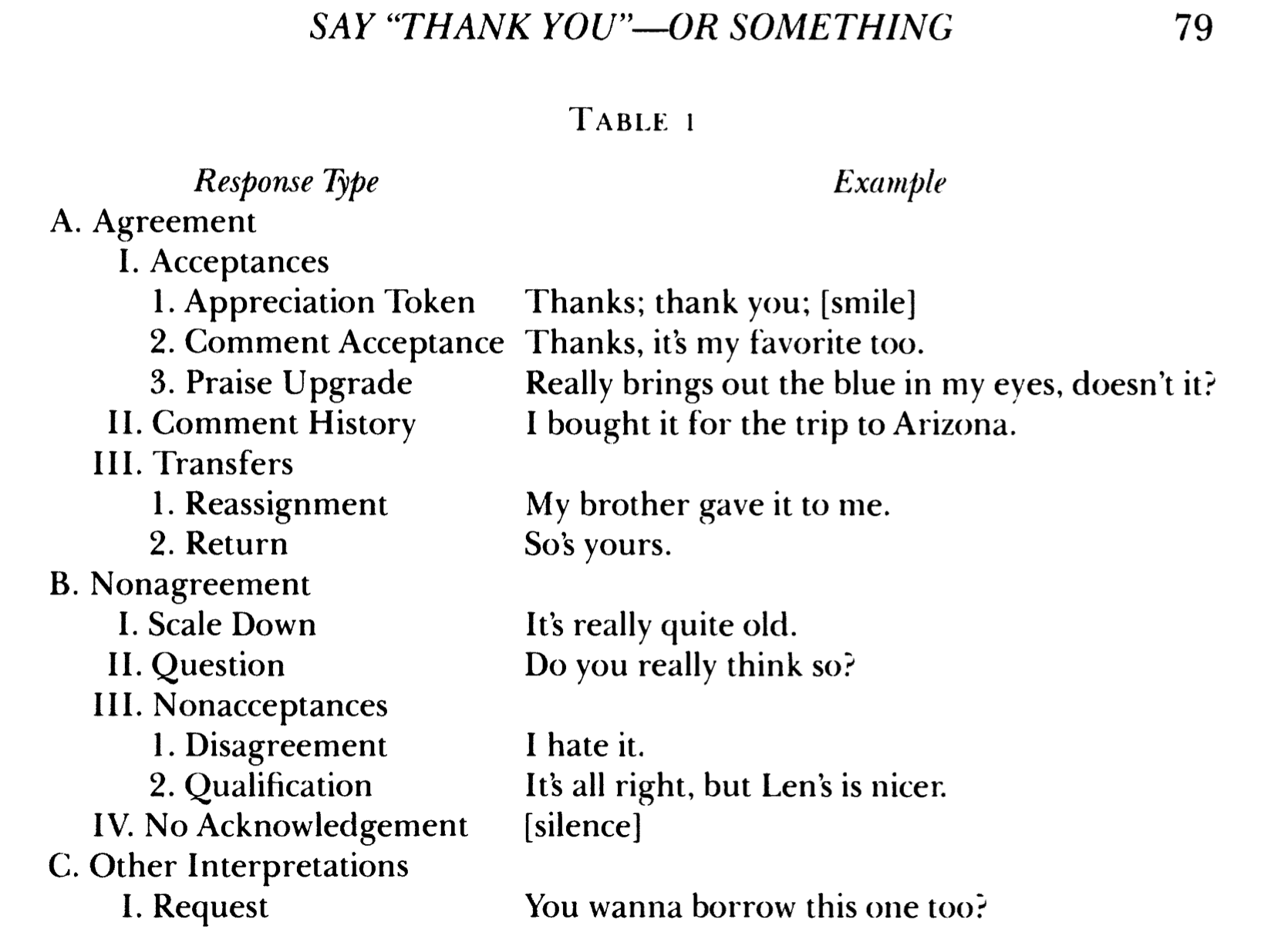
The rest reads like a “Greatest Hits” of my awkward struggles: Redirecting the compliment to others, rationalising it, or straight up dismissing it. Avoiding the compliment, in some way or another, made up 64% of all answers given.
So apparently, we just straight-up suck at taking compliments. What’s the big deal?
Well, bear with me for a second. Imagine a genuine compliment like a gift. Someone says “Here’s a nice thought I had about you - please have it.” Basically a gift.
Now imagine you offer someone a gift, and they start taking it apart. “It’s not that nice,” they say. Or look slightly to your left and change the topic. How would that make you feel?
Bringing up the courage to offer your genuine thoughts and being met with a stressed look and an awkward chuckle doesn’t really encourage doing it again. It makes me feel like I’ve done something wrong. So next time, I’ll just keep my thoughts to myself.
Paradoxically, our inability to take a compliment graciously makes this wholesome process uncomfortable for all involved. So, wouldn’t it be wonderful - for you and others - to learn to take that gift?
I think so. Which is why I started actively working on my compliment-taking abilities about a year ago. And funny enough, the technique I used greeted me again in the opening lines of the study I cited above:
“When you are complimented, the only response necessary is "Thank you.” Don't disparage yourself. If someone admires your dress, don't say “This old thing, I got it at a bargain basement sale."
This quote, taken from a 1979 etiquette guide, sums it up perfectly: A gift doesn’t come with any debt. A genuine “Thank you.” is already enough.
Its simplicity is the beauty of this technique. Whenever I had no idea how to respond, I could just say those two words. Thank you. No more awkward stammering or denying. Just two words. You don’t even have to agree with them. But there’s nothing stopping you from simply thanking them for taking the time to offer you this gift.
Now, this doesn’t automatically make you think what they’re saying is true. You might still believe that you’re unworthy of praise, that your work wasn’t good enough or that you aren’t that good of a friend. But that’s not the point here. This isn’t about your self-perception. This isn’t a discussion. This is their genuine opinion, and they had to bring up the courage to say it. Your job is simply to appreciate their effort.
And maybe, in good old ‘fake it til you make it’ fashion, refraining from deconstructing anything nice coming your way will even pave the way towards genuinely taking compliments to heart. At least that’s what happened to me.
PS: If you really feel the urge to return the favour, you can just compliment the compliment. “This meant a lot to me, because…”. That way, you can let them know that they achieved exactly what they were trying to. Everybody wins.
PPS: On our road trip last week, I asked my friends two questions:
What’s the compliment you find hardest to accept? Why?
What’s the compliment you find easiest to take in? Why?
Everybody was quick to find compliments they find impossible to receive. The easy ones were much harder to find - and ended up being ones they thought were meaningless and therefore easy to brush off. But I feel these questions are great indicators of areas you might struggle with - and therefore worth some further inquiry. So if you’re in need of some nice journaling questions, try these out :)

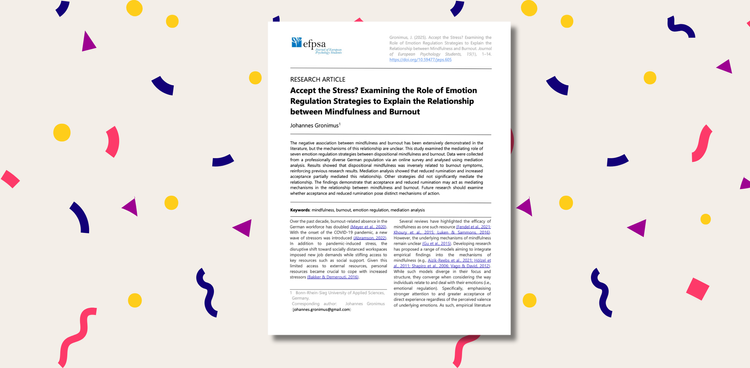
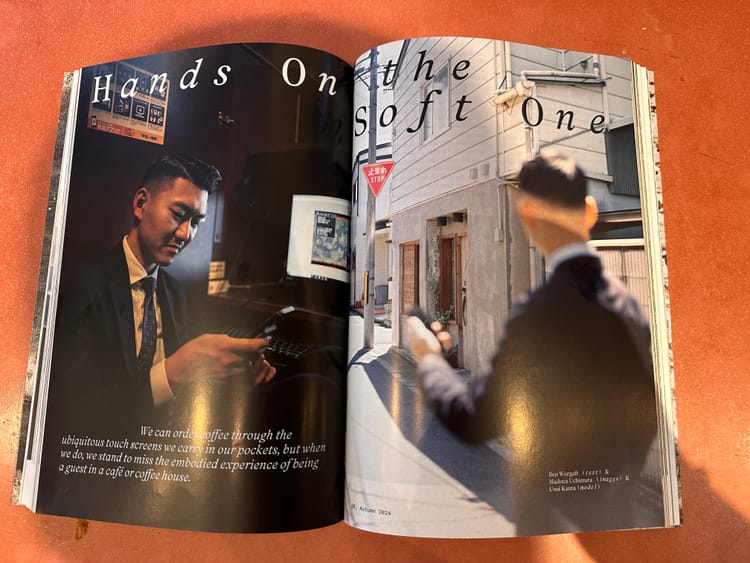
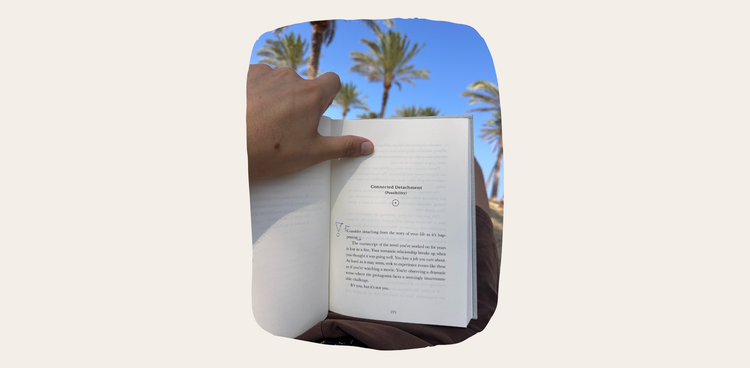
Comments ()